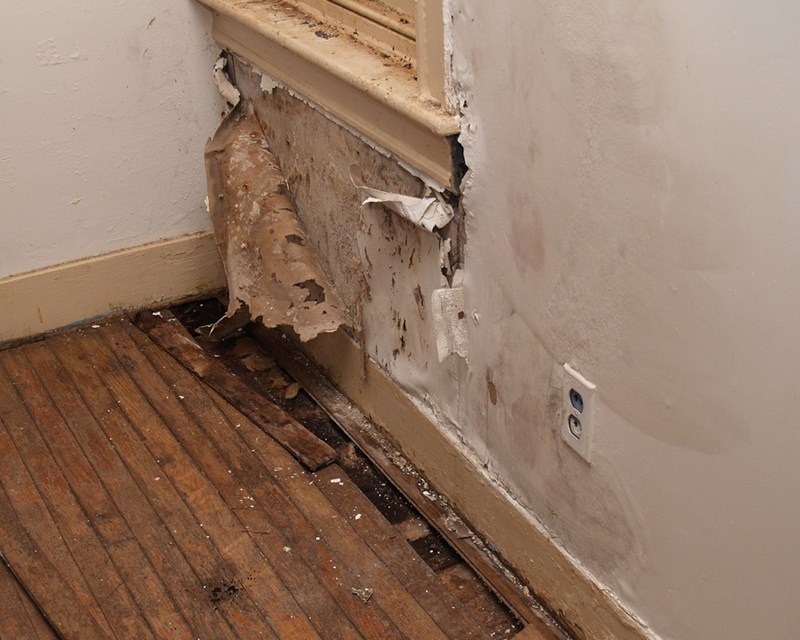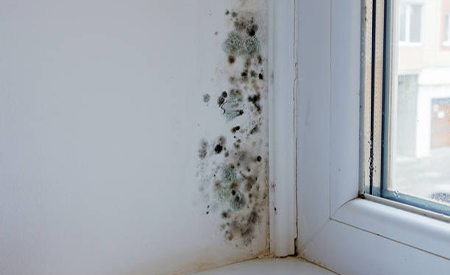Emergency Water Damage Restoration to Restore Your Property Quickly
The Process of Water Damages Cleanup: Guaranteeing Your Home Is Brought Back Effectively
Water damages can be a difficult challenge for homeowners, demanding a precise and organized cleaning procedure to recover security and capability. Originally, an extensive analysis is crucial to recognize the extent of the damages and determine the proper removal measures. Following this, efficient water removal techniques play an essential duty in mitigating further injury. The nuances of drying, disinfecting, and ultimate reconstruction are just as essential and often ignored. Recognizing these phases can make a substantial distinction in the end result of your home's reconstruction, prompting a closer check out what each action involves.
Evaluating the Damage
Upon discovering water damages, the very first step is to completely evaluate the extent of the impact. This initial evaluation is critical, as it aids identify the required steps for reliable clean-up and restoration. Begin by evaluating the impacted areas, consisting of wall surfaces, ceilings, floors, and individual items, to determine the source of the water breach, whether from flooding, leaks, or condensation.
Recording the damages is vital for both insurance cases and planning reconstruction initiatives - damage restoration services. Use pictures and written notes to record the seriousness of the damages, noting any kind of affected architectural elements and products. Pay special interest to locations that may not be instantly noticeable, such as behind wall surfaces and under rugs, as hidden dampness can result in more issues, including mold growth
In addition, evaluate the timeline of the water direct exposure. The longer the materials continue to be wet, the higher the possibility for damage. Recognizing the duration of exposure will certainly educate the urgency of removal efforts. Eventually, a thorough assessment prepares for a successful water damage clean-up procedure, ensuring that all impacted locations are dealt with successfully and extensively.
Water Removal Strategies

Specialists generally use submersible pumps for bigger volumes of water, which can quickly relieve flooding in basements or various other influenced locations. For smaller sized quantities, wet/dry vacuum cleaners are frequently utilized to remove recurring dampness from carpetings and tough surfaces. Furthermore, using mobile extractors permits targeted removal in constrained rooms or locations with fragile materials.
In circumstances of polluted water, such as sewer or floodwater, progressed extraction techniques may involve using biohazard devices to make sure security and compliance with health and wellness policies. High-powered removal tools are essential in reducing water retention in architectural materials, which can bring about mold growth and structural damage if not addressed promptly.
Eventually, the performance of water removal strategies plays a pivotal role in the general success of the water damage clean-up process, laying the groundwork for succeeding reconstruction efforts.
Drying and Dehumidification
When standing water has been properly removed, the following essential stage in the water damage cleanup procedure is drying and dehumidification. This action is vital to prevent additional damages and mold development, which can happen within 24 to 2 days in damp atmospheres.
To attain reliable drying out, customized equipment such as industrial-grade air movers and dehumidifiers is utilized. Air movers flow air throughout damp surfaces, enhancing evaporation prices, while dehumidifiers decrease humidity levels airborne, advertising a favorable setting for drying out. The combination of these tools guarantees that moisture is drawn out from floorings, furnishings, and walls, permitting them to completely dry thoroughly.
It is very important to check the drying out procedure very closely. Specialists often utilize dampness meters to assess the moisture web content in numerous materials, guaranteeing that all impacted areas reach acceptable dry skin degrees. This meticulous approach aids to prevent hidden wetness pockets that might bring about structural damage or unhealthy mold growth.

Cleansing and Sterilizing
After the drying and dehumidification stage is complete, the following essential action in water damage cleanup is cleaning up and sanitizing the impacted locations. This procedure is critical to avoid the growth of mold, germs, and other virus that More Info flourish in wet atmospheres.
The cleansing phase generally entails eliminating any debris, dust, and pollutants from surfaces utilizing specialized cleansing agents. For hard surface areas, a combination of soap and water or business cleansing products is usually employed. Soft products, such as upholstery and carpetings, may require extra comprehensive cleaning methods, consisting of steam cleaning or deep removal techniques, to ensure detailed sanitation.

Sanitizing complies with cleansing, using EPA-approved anti-bacterials to eliminate damaging microbes. This step is essential, especially in areas that might have come right into contact with floodwaters or sewage, as these resources can posture serious health and wellness threats.
Additionally, it is essential to address any remaining odors, which may need the usage of smell neutralizers or advanced methods like ozone therapy. Proper cleansing and sanitizing not only restore the security and health of your home however likewise prepared for successful reconstruction and repair services in succeeding stages of the water damage cleaning procedure.
Restoration and Repair Work

As soon as the evaluation is full, reconstruction efforts can start. This normally includes fixing or replacing broken products, ensuring that all job adheres to neighborhood building ordinance and requirements. For instance, if drywall has actually been compromised, it will need to be gotten rid of and replaced with brand-new material. In addition, flooring might require comparable attention, relying on the level of water direct exposure.
It is crucial to engage seasoned repair experts throughout this procedure, as they possess the expertise to manage complex fixings efficiently. They can help reduce prospective future concerns, such as mold and mildew development or architectural instability, Clicking Here thus guaranteeing a risk-free and habitable living setting. Eventually, reliable reconstruction and repairs restore the home's integrity and enhance its overall value.
Final Thought
In final thought, the procedure of water damage clean-up is crucial for bring back a home to its pre-damage problem. Each phase, from examining the damages to carrying out effective water extraction techniques, followed by comprehensive drying, sanitizing, and essential fixings, plays a necessary function in making sure safety and conformity with structure requirements. Efficient execution of these actions not just reduces prompt damage but likewise boosts the lasting stability and worth of the residential property.
Water damages can be a challenging difficulty for property owners, demanding a careful and structured cleanup procedure to restore safety and security and performance. Inevitably, a detailed assessment lays the foundation for an effective water damage cleanup process, making sure that all influenced locations are attended to effectively and completely.
Efficient water removal strategies are vital in mitigating damage and avoiding more problems complying with a water intrusion occasion.In final thought, the procedure of water damages cleaning is vital for restoring a home to its pre-damage problem. Each stage, from analyzing the damages to carrying out reliable water extraction methods, complied with by thorough drying, disinfecting, and essential repairs, plays an essential function in guaranteeing security and conformity with building standards.